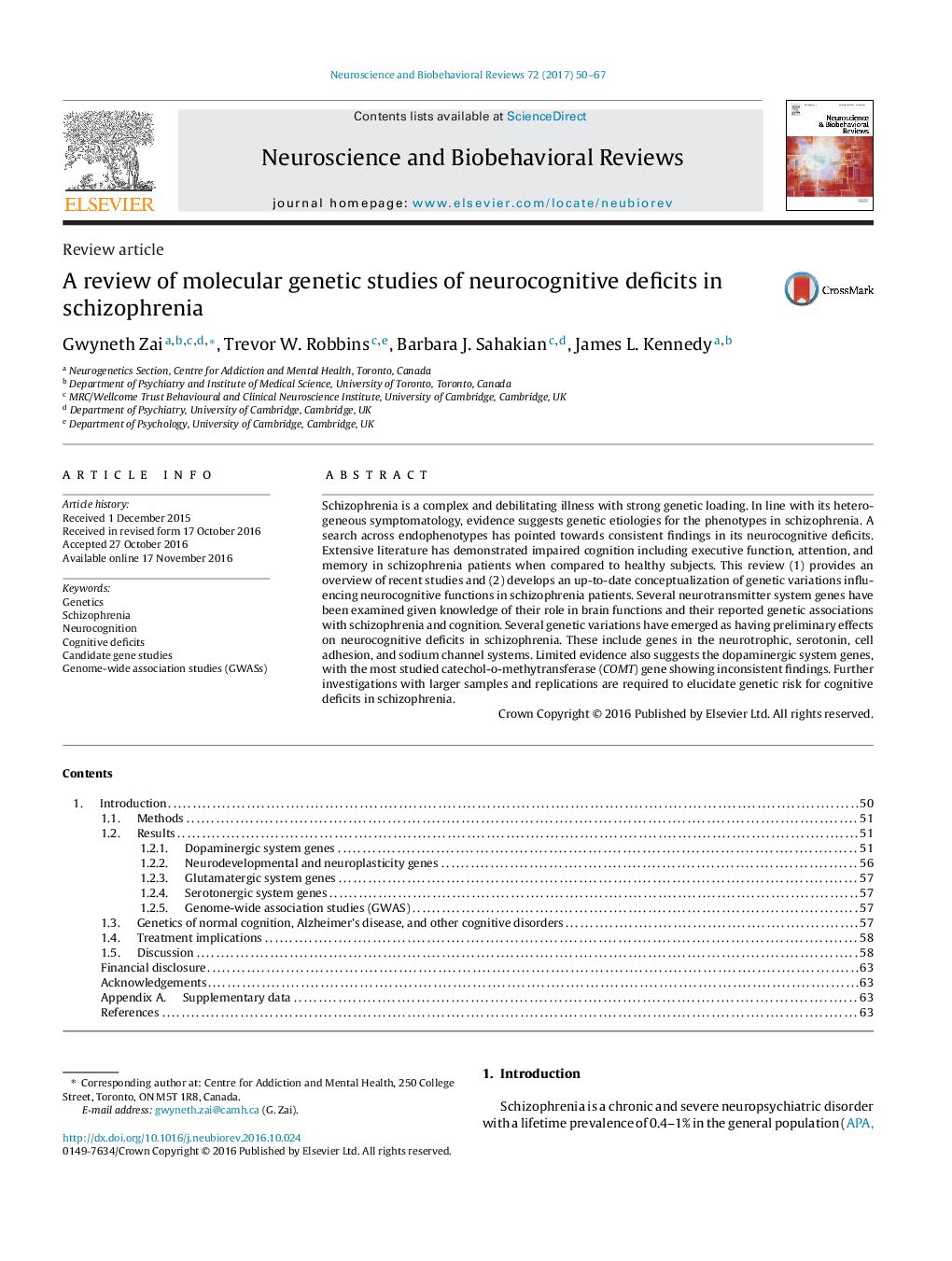| Article ID | Journal | Published Year | Pages | File Type |
|---|---|---|---|---|
| 5043641 | Neuroscience & Biobehavioral Reviews | 2017 | 18 Pages |
â¢Schizophrenia patients present with impaired cognitive functions.â¢Evidence suggests strong genetic etiology for cognitive deficits in schizophrenia.â¢Neurotransmitter system genes showed effect on cognitive deficits in schizophrenia.â¢Limited evidence suggests the dopaminergic system genes with inconsistent findings.â¢Larger samples are required to examine genetic risk of cognition in schizophrenia.
Schizophrenia is a complex and debilitating illness with strong genetic loading. In line with its heterogeneous symptomatology, evidence suggests genetic etiologies for the phenotypes in schizophrenia. A search across endophenotypes has pointed towards consistent findings in its neurocognitive deficits. Extensive literature has demonstrated impaired cognition including executive function, attention, and memory in schizophrenia patients when compared to healthy subjects. This review (1) provides an overview of recent studies and (2) develops an up-to-date conceptualization of genetic variations influencing neurocognitive functions in schizophrenia patients. Several neurotransmitter system genes have been examined given knowledge of their role in brain functions and their reported genetic associations with schizophrenia and cognition. Several genetic variations have emerged as having preliminary effects on neurocognitive deficits in schizophrenia. These include genes in the neurotrophic, serotonin, cell adhesion, and sodium channel systems. Limited evidence also suggests the dopaminergic system genes, with the most studied catechol-o-methytransferase (COMT) gene showing inconsistent findings. Further investigations with larger samples and replications are required to elucidate genetic risk for cognitive deficits in schizophrenia.
